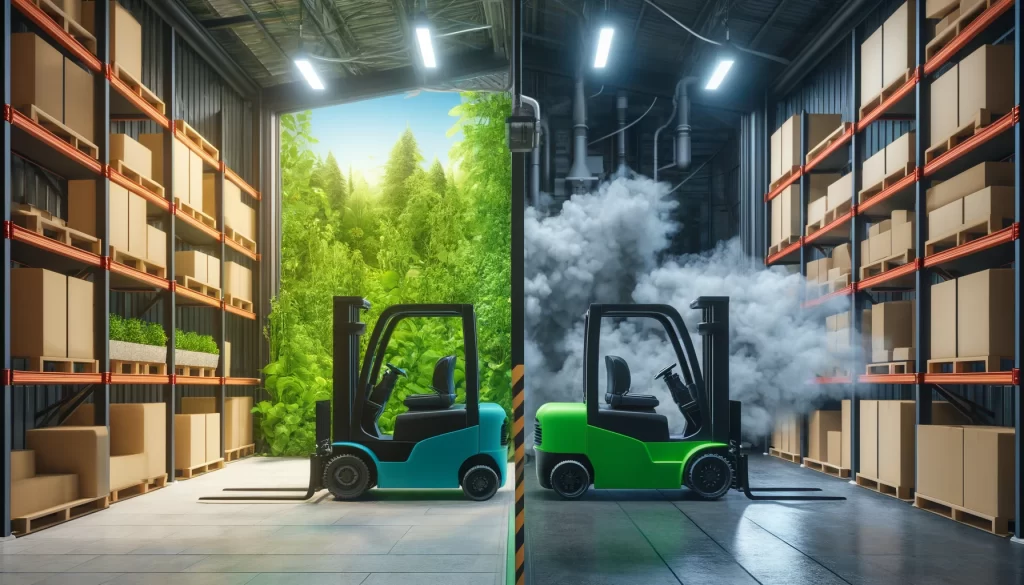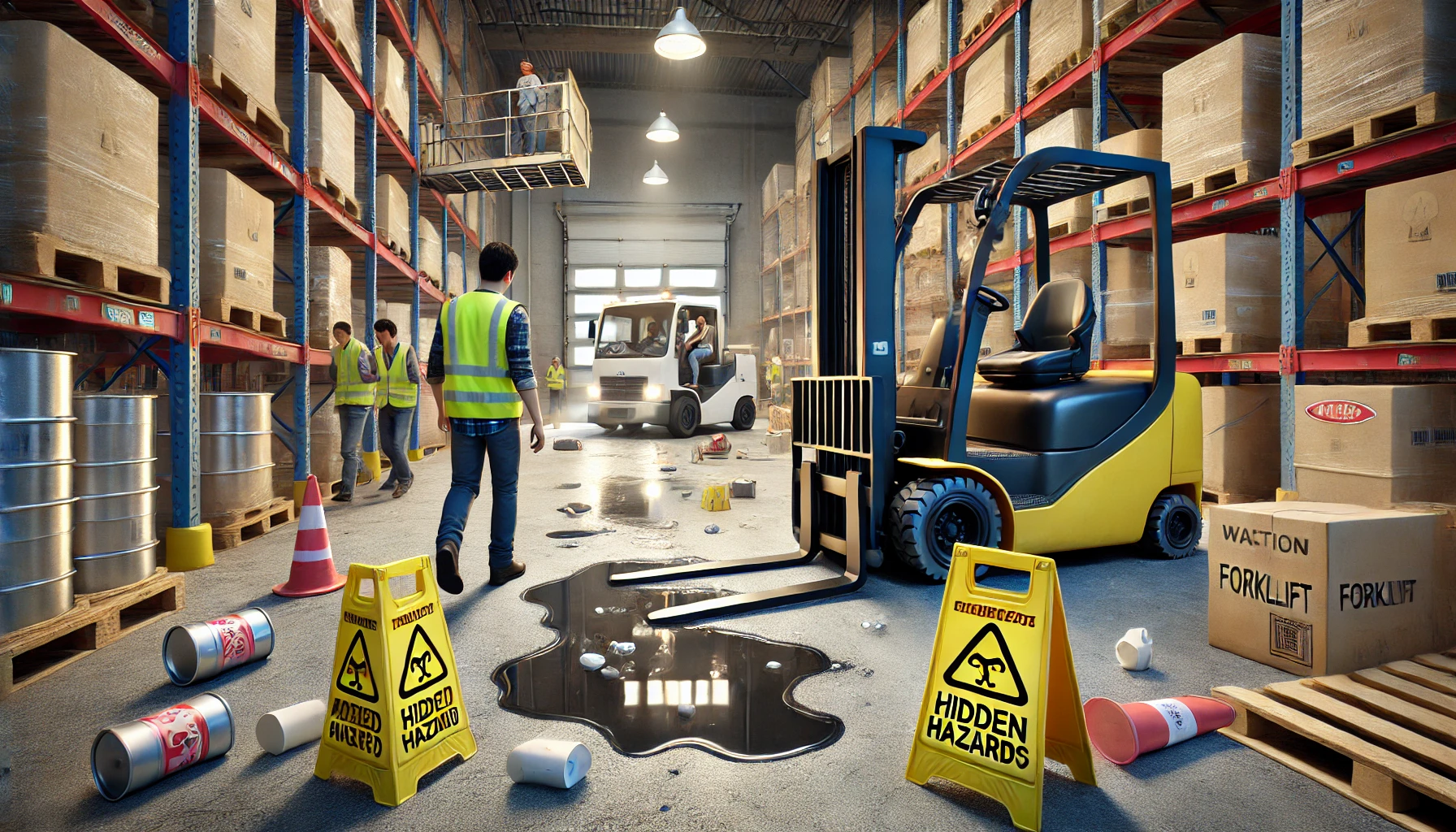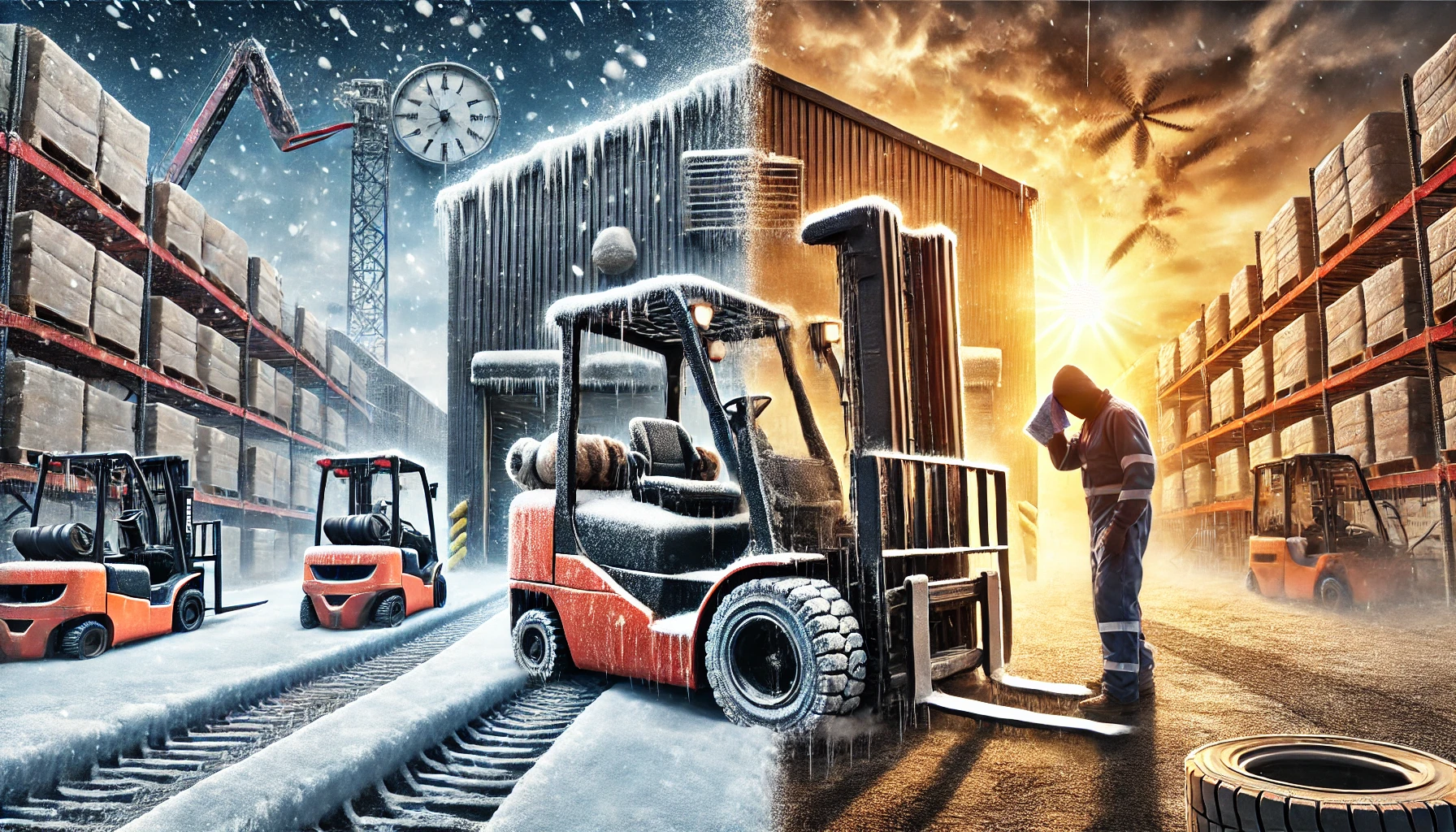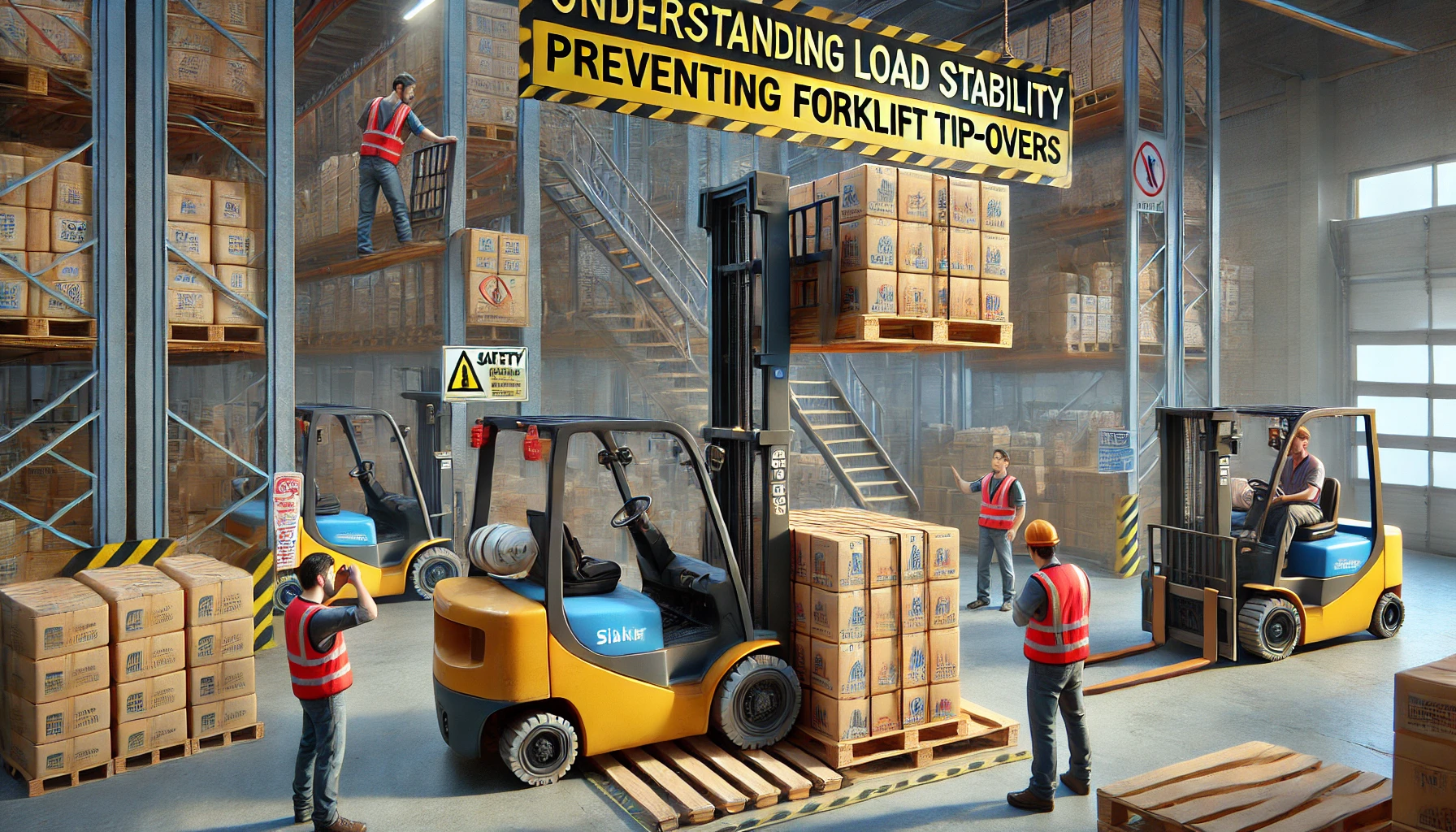As businesses around the world shift towards sustainability, one topic that’s generating buzz in warehouses and industrial sites is the move from gas-powered forklifts to electric forklifts. You might be wondering, why all the fuss? Well, it turns out that the environmental benefits of electric forklifts are pretty impressive. Let’s dive into how electric forklifts stack up against their gas-powered counterparts and why more companies are opting for greener options.
Gas-Powered Forklifts: What’s the Impact?
First, let’s look at the more traditional option: Combustion forklifts. These are typically powered by liquefied petroleum gas (LPG), diesel, or petrol. They’ve been a mainstay in warehouses for years, mainly because they offer robust power and can operate for long hours without needing a recharge. But when it comes to their environmental impact, the story isn’t as bright.
- Greenhouse Gas Emissions
Combustion forklifts emit harmful gases like carbon dioxide (CO2), nitrogen oxides (NOx), and particulate matter (PM). These emissions contribute to air pollution and play a significant role in climate change. In a busy warehouse or construction site, the combined emissions from multiple forklifts can have a noticeable environmental footprint.
- Indoor Air Quality Concerns
One major issue with Combustion forklifts is indoor air quality. Since these machines produce exhaust fumes, operating them in enclosed spaces can lead to a buildup of harmful gases. For workers spending hours inside warehouses, this isn’t just an environmental concern – it’s also a health hazard. Poor air quality can lead to respiratory problems and other serious health issues over time.
- Fuel Consumption and Cost
Combustion forklifts rely on fossil fuels, which are a finite resource. Extracting, refining, and transporting these fuels also takes a toll on the environment. And let’s not forget, fuel prices can be volatile, adding an extra cost burden on businesses relying heavily on Combustion forklifts.
Electric Forklifts: The Greener Alternative
Now, let’s turn our attention to electric forklifts. These machines run on rechargeable batteries, typically lithium-ion or lead-acid, and are gaining popularity for their cleaner, greener profile. Here’s why businesses are making the switch to electric.
- Zero Emissions
The most obvious environmental benefit of electric forklifts is that they produce zero emissions. Since they don’t burn fuel, there’s no release of CO2, NOx, or other harmful pollutants into the atmosphere. For businesses looking to reduce their carbon footprint, electric forklifts are a no-brainer.
Switching from Combustion forklifts to electric ones can significantly reduce a company’s overall greenhouse gas emissions, especially for large-scale operations with multiple forklifts in use. This change helps businesses meet sustainability goals and aligns with global efforts to combat climate change.
- Improved Indoor Air Quality
Because electric forklifts don’t produce exhaust fumes, they are much better suited for indoor operations. In warehouses or distribution centres, using electric forklifts means cleaner air for workers, reducing health risks associated with inhaling fumes. This not only improves the well-being of staff but also creates a more pleasant work environment.
- Lower Noise Pollution
It’s not just about emissions – electric forklifts are also much quieter than their gas-powered cousins. The reduced noise levels make for a more comfortable workplace, especially in indoor settings where noise can be a distraction or even a safety concern.
- Sustainability of Energy Sources
One major advantage of electric forklifts is the potential to run them on renewable energy. Businesses that have invested in solar panels or other renewable energy sources can charge their electric forklifts using clean energy, further reducing their environmental impact. This option makes electric forklifts even more sustainable in the long run.
A Cost-Effective Solution, Too
Beyond the environmental perks, electric forklifts also offer financial benefits over time. While the initial cost of an electric forklift might be higher than a Combustion one, the long-term savings can be substantial. Here’s why:
- Lower Operating Costs
Electric forklifts are cheaper to run than Combustion forklifts because electricity is typically less expensive than fuel. Plus, electric forklifts have fewer moving parts, meaning they require less maintenance. Over time, businesses save on fuel, maintenance, and repair costs, making electric forklifts a smart financial investment.
- Longevity and Efficiency
Electric forklifts are also known for their longevity. A well-maintained electric forklift can last longer than a Combustion one. And with advancements in battery technology, modern electric forklifts can operate for longer periods on a single charge, reducing downtime and improving efficiency.
Why Businesses Are Making the Switch
The shift towards electric forklifts is part of a broader trend of businesses embracing sustainability. In addition to the clear environmental and financial benefits, many companies are also finding that switching to electric forklifts helps improve their reputation with customers and stakeholders. More and more, consumers are looking to support companies that are committed to reducing their environmental impact.
In industries like warehousing, logistics, and manufacturing, where forklifts play a crucial role in daily operations, going green isn’t just good for the planet – it’s good for business.
The Future of Forklift Operations
As the demand for greener solutions grows, so does the technology behind electric forklifts. We’re already seeing advancements in battery life, charging efficiency, and performance, making electric forklifts an even more attractive option for businesses of all sizes.
In the future, we can expect electric forklifts to become even more powerful, versatile, and cost-effective. And as more companies embrace renewable energy sources, the environmental impact of these machines will continue to shrink.
Conclusion
When comparing electric forklifts to Combustion ones, it’s clear that the environmental benefits are substantial. From zero emissions and improved air quality to lower noise pollution and the potential to run on renewable energy, electric forklifts are the greener, cleaner choice for businesses looking to reduce their environmental footprint.
With the added benefits of lower operating costs and longer life expectancy, electric forklifts are becoming the go-to option for warehouses and industrial sites across Australia. For businesses committed to sustainability, the future of forklift operations is electric – and that’s something we can all feel good about.







